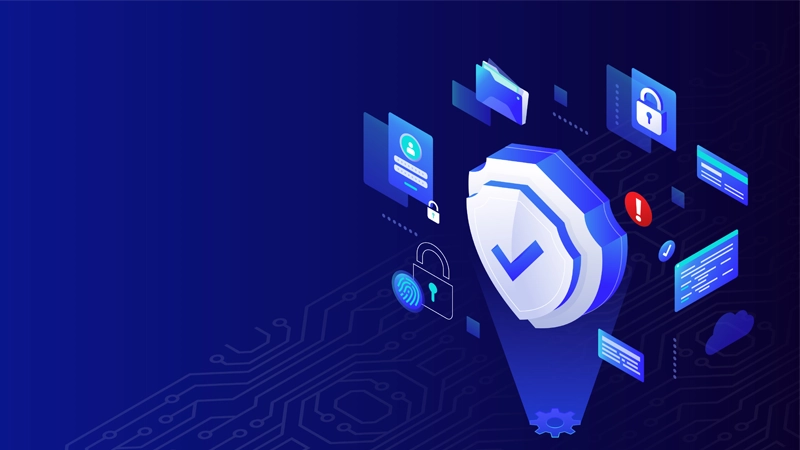Diagnosing the 2023 Healthcare Data Breach Endemic

Technology has vastly improved the quality of human life, a fact that is most abundantly apparent in the healthcare sector. Evaluating health data has helped researchers uncover and solve more health challenges than ever before and move from a disease-centered approach to a patient-centered one. Integrated healthcare technology such as the electronic medical record (EMR), therefore, is capable of helping increase positive patient outcomes at every level within the medical system. But that means there is more data to protect.
Not too long ago, protecting patient data in a healthcare facility was as easy as locking the file cabinet where paper records were stored. Now with patient information stored in EMRs for this more integrated approach to care, personal and sensitive data is at considerably higher risk for hacking and theft.
Within healthcare, regulations such as the Health Insurance Portability and Accountability Act (HIPAA) set the national standard for protecting individuals’ medical records and other personal health information, giving patients more control over their data while also setting boundaries on the use and release of health records. HIPAA outlines how healthcare providers must protect the privacy of sensitive patient data, and holds violators accountable. In short, without HIPAA, there would be no requirement to safeguard patient data, and no repercussions for failure to do so.
While some hospital leaders see cybersecurity as a purely technical issue that falls largely to the IT department, cybersecurity should actually be considered part of patient safety. Protecting patient safety and privacy comes by aligning both cybersecurity and patient safety initiatives, reducing or even eliminating disruptions that can negatively impact clinical outcomes and ensure the continuity of effective and high quality care delivery.
Why is Healthcare High Risk for Data Attacks?
Any organization that stores data is at risk for a cyberattack, although it certainly seems as though healthcare experiences attacks and breaches at a higher rate and frequency than any other industry (as evidenced here and here).
There’s good reason for that:
- Valuable Patient Information: Customer data is valuable to hackers, and medical data even more so because it contains more private and personal data. Healthcare data can be sold quickly online.
- Digital Medical Devices: Mobile technology and digital devices are advancing faster in the medical industry than nearly anywhere else. Unfortunately, the data storage devices are easy enough for hackers to access and steal sensitive information.
- Remote Data Access: With healthcare organizations employing hundreds if not thousands of staff members, remote data access is critical. However, remote data access also creates a greater vulnerability to cyber-attacks.
- Busy Medical Practices: Overwhelmed medical professionals who are managing large workloads on a daily basis do not always schedule time for implementing data backups, secure passwords, or other privacy measures, especially if those measures would come at the expense of any disruption in workflow. This can result in facilities neglecting important data protection practices.
Healthcare has already seen a dramatic increase in data breaches in 2023. According to a recent report from the Department of Health and Human Services:
- Healthcare data breaches have increased an unprecedented 30 percent as compared to 2022,
- As many as 78 percent of those breaches were due to hacking and other IT-related incidents,
- Unencrypted devices and networks caused 11 percent of the healthcare data breaches,
- These 2023 breaches have cost the healthcare industry an estimated $6.5 billion already, and
- More than 34 million people in the US—roughly 10 percent of the country’s total population—have been affected by healthcare data breaches.
In addition to these immediate stats, a 2021 report from IBM revealed that the healthcare industry takes a larger financial hit as a result of a data breach than any other industry with an average cost of $9.23 million per breach. Not only that, healthcare data breaches impact patient health: CISA research from 2021 found a direct correlation between cyberattacks and mortality due to the series of events that follow a breach.
This is all clearly a wake-up call for the healthcare industry to re-evaluate and strengthen security protocols to better protect valuable and sensitive patient data.
Data Protection is Part of Patient Care
Those tasked with keeping healthcare data safe can’t assume that they will never experience a data breach. Instead, the better assumption is that patient information is always at risk and organizations should find ways to render it useless when it is inevitably stolen. It may be impossible to be 100 percent protected. But modern cybersecurity measures can help healthcare providers improve detection, containment, and remediation of a data breach, protecting the organization and patients alike.
In addition, healthcare organizations must comply with HIPAA’s technical safeguards, which include hardware, software, and other technology that limits access to sensitive and personal patient data. Some of these safeguards may include tech-enabled controls such as access control and data encryption.
That’s where PKWARE can help. With the ability to automatically find and protect data across endpoints, enterprise, mainframe, and cloud, PKWARE has a solution that will help you meet HIPAA compliance requirements and protect patient data, freeing employees up for other critical needs and ensuring patients receive the best and safest care possible.
Total patient health should include the health of patient data, too. Find out how PKWARE can help you navigate the ever-changing cybersecurity landscape in order to provide top-rated patient care and protect data in the event of a healthcare data breach. Our Data Risk Assessment helps you find and protect data by uncovering risks in five business days or less. Sign up for yours now.










